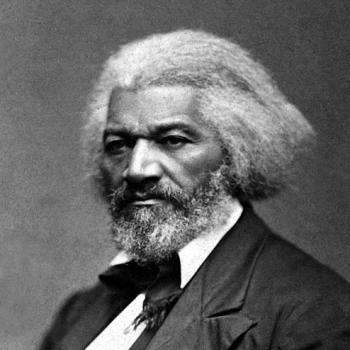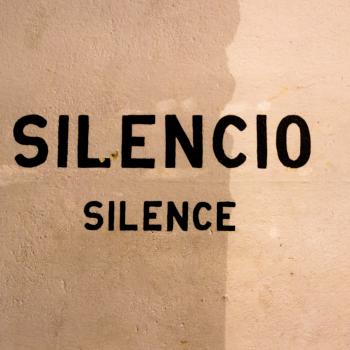The Paradox
As I’ve tried to pay attention to, study, and understand the common perspectives of sex in our American cultural milieu, I’ve come to the conclusion that we abide by a paradox. The pervasive and paradoxical perspective on sex is this: sex means nothing and sex means everything.
On the one hand, we have swiped right (or left, as the case may be) so many times that we’ve dehumanized other persons (and consequently ourselves) into mere pleasure-inducing objects. Sex is as casual as a handshake. It points to nothing beyond itself. There are no strings attached. Sex is cheap: it means nothing.
On the other hand, we are perhaps more sexualized now than ever and we jealously guard our so-called right to express ourselves erotically. Just about everything is OK and the frontier is rapidly expanding west. That is, nearly everything is allowed, granting consent (whatever that happens to mean). We’ve conditioned ourselves into a neurobiologically-wired obsession with sex. Sex is our most precious pursuit: it means everything.
The Centre Cannot Hold
In light of this, I cannot help but think of W.B. Yeat’s remarkable poem “The Second Coming”:
Turning and turning in the widening gyre
The falcon cannot hear the falconer;
Things fall apart; the centre cannot hold;
Mere anarchy is loosed upon the world,
The blood-dimmed tide is loosed, and everywhere
The ceremony of innocence is drowned;
The best lack all conviction, while the worst
Are full of passionate intensity.
As Yeats powerfully states: “Things fall apart; the centre cannot hold.” The bright, pornified future with so many blue-tinged promises of freedom, liberation, and expression have led us to this dark moment. All the roads paved by the Hugh Heffners lead to the Playboy Mansion. In fact, the mansion can serve as a metaphor for our times. In the 70s, the Playboy Mansion maintained the guise of an erotic anti-Disneyland, a palace of pleasures unending. By the 2000s, the Mansion devolved into disrepair and, according to the testimony of some ‘Bunnies,’ it was more like an internment camp than a happy sexual playground. Over the course of a few decades, the Playboy Mansion went from a fantastic destination of glitz and glamour to a derelict 22,000 square-foot house that smells like piss and old man pajamas.
The arc of human history does not bend towards sexual liberation. The arc of the sexual revolution has led us to the mess we’re in today. This brings us to the Weinstein Effect and its corollary, the #metoo movement, punctuated most recently by the Aziz Ansari debacle. These movements are exposing sexual predators and empowering sexual assault victims, which is good. These movements are also exposing the poverty of the sexual revolution. Our so-called sexual liberation cannot be characterized as progress.
I think most of us are realizing that we are not OK. Stephen Marche powerfully articulates part of the problem in his New York Times article “The Unexamined Brutality of the Male Libido.” As his article points out, the sex-drive of men is very often ugly, violent, and dangerous. It’s clear there are some serious issues.
It should also be clear by now that our culture doesn’t have the moral resources to offer a robust solution, let alone talk about it. The problem has become even more intractable when you consider the impact of the sexual revolution on our ability to talk about gender in a meaningful way. As Mr. Marche convincingly argues, we do, indeed, have a problem with the male libido and he wants men to talk about it. This seems obvious. But in our cultural grammar, is it appropriate to talk about a “male” libido? Have we not already forfeited the meaningful language of maleness and femaleness that would make such a conversation possible?
From what I can tell from our culture’s “best practices,” when it comes to sexual expression, the primary and perhaps only rule for any sexual encounter to be OK is consent. At this point, I think it’s clear that consent is necessary but insufficient, especially since we’re rather confused as to what consent even means.
A New Sexual Revolution?
Elizabeth Bruenig offers a thoughtful take on some of these issues in a recent piece in the Washington Post. In his article “The Aziz Ansari debacle proves it’s time for a new sexual revolution,” she writes:
One of the principal outcomes of the sexual revolution was to establish that sex is just like any other social interaction — nothing taboo or sacred about it, no big deal. The trouble is that sex is clearly different, as the lasting unhappiness of so many women attests. If acknowledging that endangers one of the achievements of the sexual revolution, then so be it: What is the alternative?”
She goes on to say that we cannot continue to treat sex as like any other social interaction.
Instead, we ought to appreciate that sex is a domain so intimate and personal that more harm can be done than in most social situations, and that given that heightened capacity for harm, we should expect people to operate with greater conscientiousness, concern and care in that domain than in others.
In the end, she calls for a new sexual revolution, one that includes taking into consideration “one another’s interior lives, feelings, personhood, dignity.” Bruenig concludes her article with a plea to bring more empathy and responsibility into our sexual lives. This, she characterizes, as “a sexual revolution in its own right.”
Read that again. And then I want you to pause and take stock of where we are. What she is advocating for is simply this: treat the people you have sex with as persons that you care about. This kind of treatment of another human being that you’re having sex with is… revolutionary. We’re not in Kansas anymore. We’ve come a very long way in the wrong direction.
The problem with Bruenig’s way forward isn’t that she’s wrong. The problem is that she has to write something so obvious. Her proposal is absolutely right but it simply doesn’t go far enough.
The Way Forward: Go Backwards
We do need a new sexual revolution. The most revolutionary way forward is to go backwards. If we want to actually make progress in human sexuality, we must retrace our steps. C.S. Lewis articulates this idea in Mere Christianity:
We all want progress. But progress means getting nearer to the place where you want to be. And if you have taken a wrong turning then to go forward does not get you any nearer. If you are on the wrong road progress means doing an about-turn and walking back to the right road and in that case the man who turns back soonest is the most progressive man. There is nothing progressive about being pig-headed and refusing to admit a mistake. And I think if you look at the present state of the world it’s pretty plain that humanity has been making some big mistake. We’re on the wrong road. And if that is so we must go back. Going back is the quickest way on.
At this point, I am speaking primarily to the Church. The Church has been swept up by the sexual revolution. From what I understand, we look almost no different from the culture with regards to divorce, pornography, and abortion. All of this must start at home. Starting with the Church, we need to first acknowledge our complicity in the rotten fruit of the sexual revolution. Then we need to repent and turn back and abide by the biblical, historical, orthodox positions on marriage, divorce, birth-control, abortion, pornography. All of it. It’s not possible to be the light when you’re dwelling in the dark places with everyone else.
So, where do we go from here? In his recent post on First Things, Hans Boersma offers 8 theses on sex.
- Sex is searching for God.
- God invents sex.
- Sex is not God.
- God is chastity.
- Sex is temporary.
- Disordered desire makes for disordered sex.
- Fallen bodies make for fallen sex.
- Sex leads to kids.
Much more needs to be said about the beauty of sex and what it’s for. This isn’t a perfect list but it’s a fine starting point that gives us some tracks to run on as we attempt the most radical, revolutionary thing: abiding by Christian sexual ethic that is biblical, historical, and orthodox.
God help us.

















